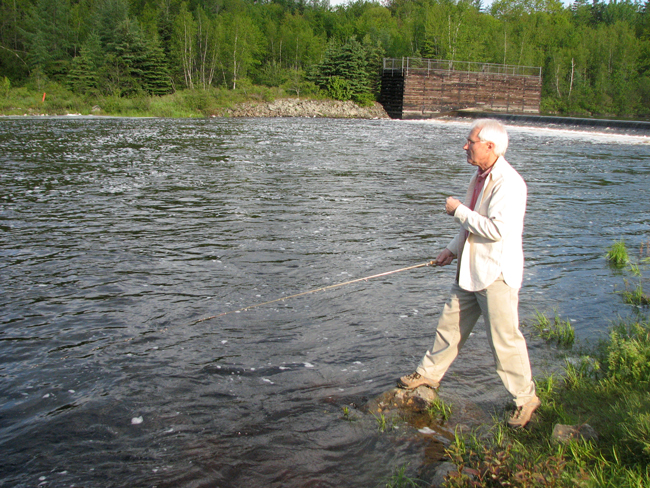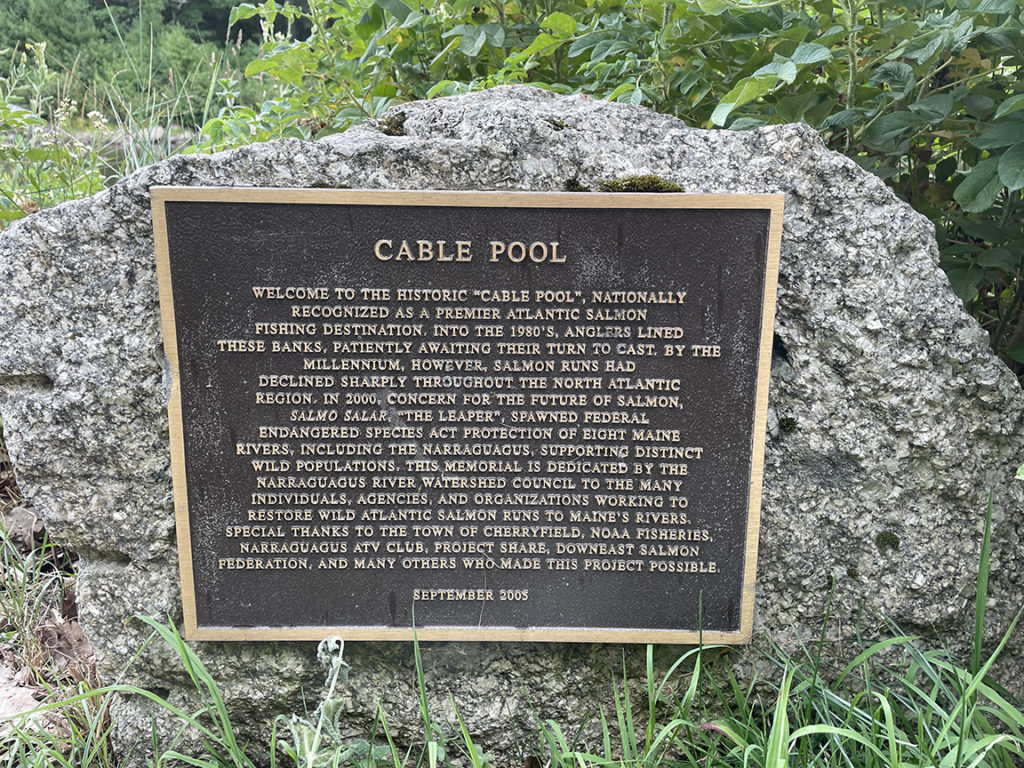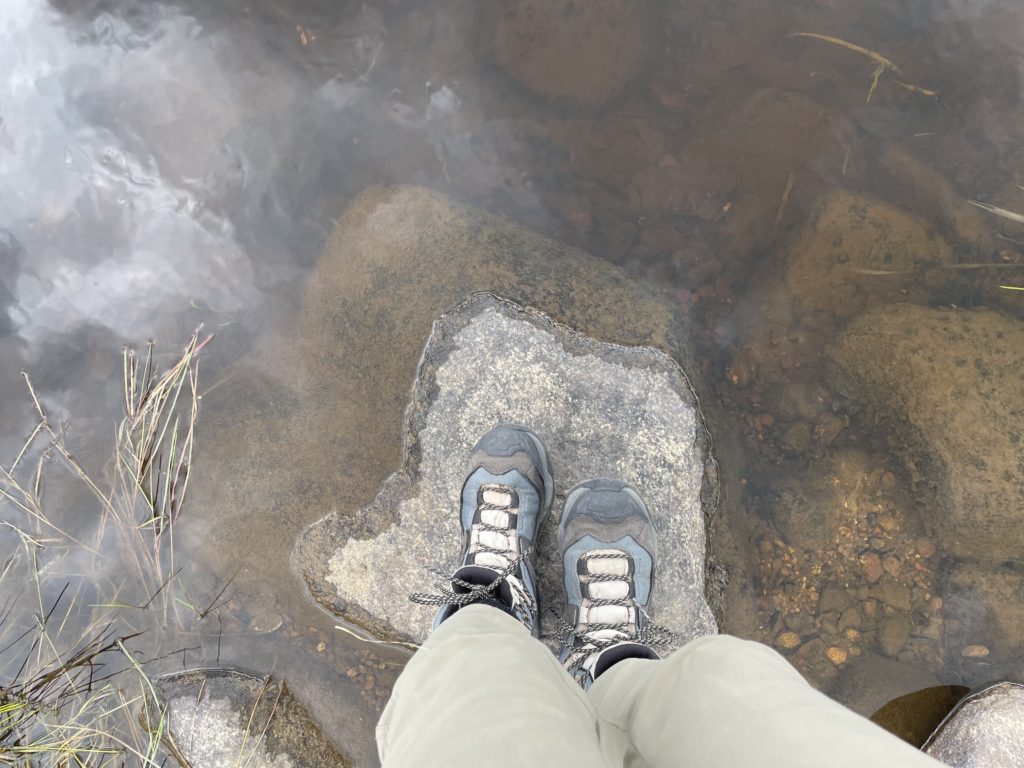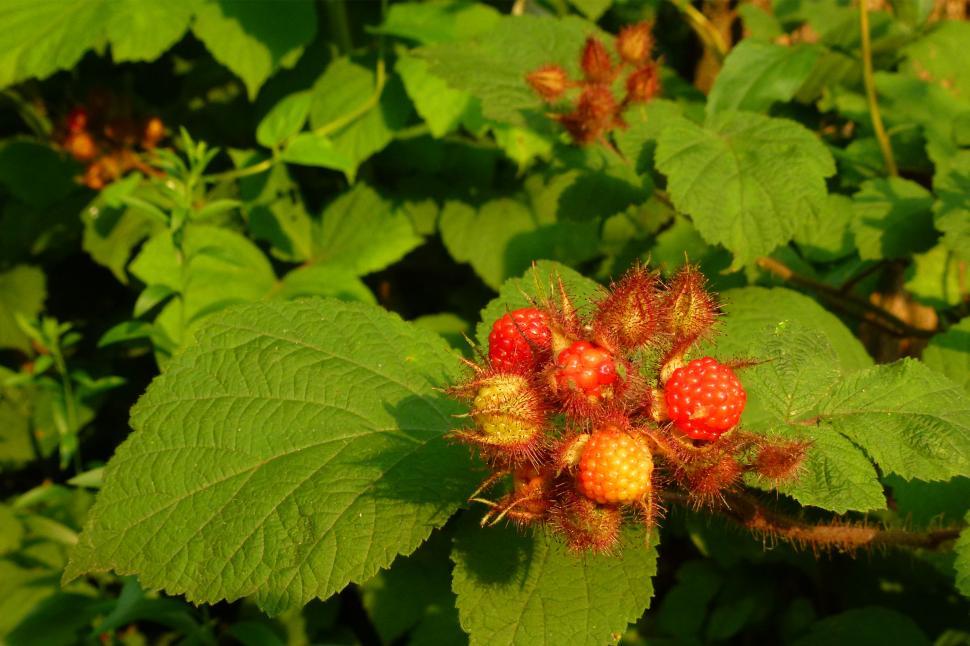
THE RIVER IN CHERRYFIELD was lined with fishermen, their fly rods sending tight loops over the water. Atlantic Salmon returned here every year, and the Narraguagus River attracted anglers from around the world. The fish that were caught were killed. That was in the 1960s and ’70s.
Not long ago I returned to Cherryfield, walking along the river’s edge looking for the location of Academy Pool. My husband, Dennis, had pointed it out on one of our many weekend getaways to that village, but as I peered through a dense thicket of briars and alder I found it difficult to imagine scores of wader-togged fishermen awaiting their turn on the water.

I was pretty sure I was in the same place where we had stood that day, but the river whirled and eddied and I was uncertain which particular spot was it. Next to Washington Academy, which gave the pool its name, a gentleman was mowing his lawn.
I asked him if he knew. He reached out as though to grab my shoulders, but his hands stopped a few inches away. “Ah, COVID,” I thought as he pretended to spin me to face the water I had just left. He gestured widely and said that was it. He remembered the days when it was a fishing destination and the big fish that came through. He did not remember my husband. He seemed happy to stop mowing, so we chatted about history. Cable Pool, a short way upstream, was named after the U.S. Geological Survey cableway that was used when monitoring the water. Remnants of it mark the spot, along with a plaque.
I told him how Dennis Smith, a young and newly passionate fly-fisher, had fished there in the ’70s and how he had long supported catch-and-release. I shared this from one of Dennis’ files:
“On June 21, 1974, an Atlantic Salmon conservation movement was started in Maine on the Narraguagus River in Cherryfield. The first documented live release of an Atlantic Salmon in the famed ‘Cable Pool’ took place on this particular day. Dennis Smith, a young wannabe salmon angler, decided to release a salmon if he was lucky enough to induce a strike.”
I told him I was learning to fly fish; he described how clear of brush the riverbanks had been and that there was still an old bench if you could get down to it. I have brochures that share some of Dennis’s story and handed one to this kind man. He started to read a bit aloud and I knew I had to leave. He looked into my wet eyes and opened his arms wide. In a second, I was squished in a big comforting bear hug. COVID was not on our minds.
Dennis had a degenerative disease called Supranuclear Progressive Palsy. We had a cemetery plot and urn burial plans when we met with a caseworker to fill out advance directives. The caseworker asked what Dennis wanted to be done after death, and Dennis surprised me by saying he wanted his ashes scattered, with some at Academy Pool in Cherryfield.
I wasn’t prepared to bushwhack down to the water yet, so I drove the short distance to Cable Pool. I parked by the spot below the ice dam where Dennis used to fish while I would crawl around looking at plants to try to ID them. Someday, I had promised him, I would be ready to learn how to fish.
There were two fellows there already fishing. Reluctant to have my first solo fly-fishing experience under watchful eyes, I left my gear in the car and wandered down. I admired a shad that one of them had landed and said how good the roe was. The younger fisherman, hearing my voice, peered at me and asked, “Karen?” It was Jason, who had bartended in Bar Harbor and served us many times, as dinner at a bar was usually easier and better than cooking. He told me Dennis had given him tips on when and where to fish. The other man listened as we talked about salmon and shad and changing times. He asked if I knew about the Downeast Salmon Federation. Dennis had been involved since the early days of the organization, and our conversation circled around the fish hatchery, catch-and-release, and back to the moment. I explained how I was learning to fish and was going to release some of Dennis’s ashes.
The older man said, “What are you waiting for, girl? Go get your stuff!” Suddenly it was a group effort. We laughed at my story of spending over an hour getting tangled in my leader and finally cutting it off and starting over. They admired the fly I had tied following Dennis’s pattern for his trusty “Rodney Dangerfield.” Jason had me step on a rock, the choice spot for casting, and from which I knew Dennis had fished many times.

After 20 minutes of companionable fishing, Jason and the other man left. With golden light, reflective waters, and peaceful thoughts, I fished on. I got my second strike, but this time lost my fly. Who knows where that Rodney Dangerfield will end up? I stooped, and released some of Dennis to keep it company.



